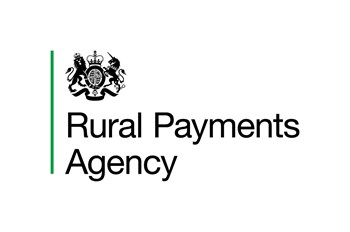Rural Payments Agency

 Supporting The Basic Payment Scheme (BPS) and Rural Development Schemes
Supporting The Basic Payment Scheme (BPS) and Rural Development Schemes
The Rural Payments Agency (RPA) makes payments to farmers, traders and land owners, under the EU’s Common Agricultural Policy.
The Rural Payments Agency (RPA) makes payments of over £2 billion per year to farmers, traders and land owners, under the EU’s Common Agricultural Policy, to support farmers’ incomes and rural development. Many farmers rely on the payments, therefore prompt, accurate payments are essential.
Data for the Rural Payment service is collected and managed through two components: A Customer Portal and the Land Management System (LMS). The LMS holds the geospatial master data, including 2.5 million land parcels and 3.4 million land cover records required to manage farm payments. It is supported by a team of land digitisers who convert farmers’ paper submissions into geospatial data and manage any subsequent changes, updates or corrections. The LMS enables the verification of changes using remotely sensed geospatial data (such as aerial photography) and farm inspections.
Supporting digital & data driven decision-making
The Rural Payments Agency – and its sponsor, the Department for Environment, Food & Rural Affairs (Defra) – have an aim of becoming more digital and data-driven; using data to support faster, more accurate decisions. To achieve this, the LMS data must be kept accurate and current.
In 2016, 1Spatial, in partnership with IT solutions provider Version 1, was awarded the contract to provide live service support for the Portal and LMS. Version 1 took responsibility for the Customer Portal while 1Spatial brought its expertise in the management of geospatial data infrastructures to the LMS.
The LMS is a bespoke business system that has been built by integrating different, best of breed, open source and commercial, off the shelf (COTS) software and custom code. This includes 1Spatial’s 1Integrate software and custom code. The system publishes a number of web mapping services, using open source technology, which are consumed by other components of the LMS and systems used by RPA.
The support service handles and resolves day-to-day support issues and manages change requests – client requests for system changes and enhancements.
Building confidence with agile development
1Spatial began a three-month transition period taking a risk-based approach to focus on the knowledge acquisition necessary to support the system. This included the analysis of customer support requests and embedding 1Spatial staff within existing teams at RPA. The approach prepared the 1Spatial team to deal with urgent change requests once the support period commenced. 1Spatial’s developers and engineers use an Agile development approach, which is common in software development houses, but less often seen in the field. Using this, engineers worked in regular, two-week sprints to address a prioritised “backlog” of tasks. At the end of each sprint, the team presented the results back to RPA, each time demonstrating the changes and the tests run to ensure no errors had inadvertently been made. This approach also allowed for rapid client feedback.
As a result, 1Spatial quickly gained the confidence of the RPA team. Not only could RPA see the progress being made against previously identified issues, but the regular presentation of results from automated, repeatable, end-to-end tests reflected the engineering rigour that 1Spatial seeks to bring to any project.
Like many organisations with a large and critical IT infrastructure, RPA works to a strict release schedule for any updates. However, the urgency of some updates, combined with the confidence the team had established with RPA meant that 1Spatial could work with the client’s infrastructure team to negotiate “off-drop” updates where these were urgently required. After a time, RPA’s team adopted the automated tests developed by 1Spatial thus improving their own efficiency.
Accelerating the update pipeline
When 1Spatial started to provide support to the live Rural Payment service, the validation of geospatial data updates was a major constraint on the system. Updates submitted by inspectors or from aerial photography needed validation by the land digitisers. At the start of the contract, there was a back-log of hundreds of updates that required checking.
Using its experience of similar situations and deep knowledge of its own 1Integrate software, the 1Spatial team reviewed the pre-existing automated data validation rules. Several improvements made automatic validation much more efficient. As a result, a greater proportion of data submissions were checked and validated automatically, reducing the number requiring expert, manual intervention to an average of 10-12 at any given time. RPA’s team of land digitisers could then focus their expertise on the remaining, more difficult exceptions.
Better, faster decisions
1Spatial’s support of the Land Management System has helped ensure that the RPA’s core geospatial data is consistently more accurate and up-to-date. In turn, this has supported the RPA in meeting its internal payment targets each year. At the same time, an improved geospatial data validation system means the RPA makes more effective use of claimants’ submissions. This reduces the amount of work required by farmers in making their claims and further increases the accuracy and timeliness of payments.
The provisioning of geospatial services, for example mapping and aerial photography, as part of the LMS, ensures that digitisers and other RPA decision makers have consistent access to digital data. The success of the RPA’s Rural Payment service means greater efficiency for the Agency. It also means the Agency can make better-informed decisions faster using digital services and data.
"From the beginning, 1Spatial has impressed with its partnership approach, its engineering rigour and its geospatial expertise."
Rupert Waite, Rural Payments Agency, Geographic Information, Technology, Strategy and Policy Manager
Looking ahead
This is a time of change. Defra has recently consulted on the future of farming and the environment and has introduced a new Agriculture Bill. The Bill sets out how farmers and land managers will in future be paid for “public goods”, such as better air and water quality, improved soil health, higher animal welfare standards, public access to the countryside and measures to reduce flooding. 1Spatial looks forward to supporting the RPA (and other government departments and agencies) in making best use of geospatial data and in developing effective data infrastructures and services to benefit decision-making.
Enjoying long-standing relationships with other government land and environmental management departments, national mapping agencies and commercial organisations around the world, 1Spatial has rich experience in managing and giving user’s access to geospatial data.
"1Spatial’s involvement has helped us meet our performance targets and move towards our goal of becoming an increasingly digital and data-driven organisation."
Rupert Waite, Rural Payments Agency, Geographic Information, Technology, Strategy and Policy Manager

